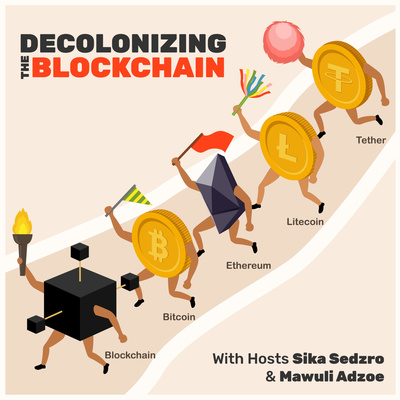
In this episode, we discuss the differences between blockchain, Bitcoin, and cryptocurrency. We also delve into the history of Bitcoin, the first application of blockchain technology while providing an overview of the original intent of Bitcoin.
People often confuse blockchain technology, Bitcoin, and cryptocurrency. In this episode, we explained some foundational concepts of blockchain technology, which is the underlying technology for Bitcoin and other digital or cryptocurrencies. We also provide insights into the differences between all of these terms.
When thinking about Bitcoin, most people don’t think about the technology that underlies it. In this episode, we discuss blockchain, a type of database technology that is revolutionizing how financial transactions and record-keeping is taking place online. We explain how data is stored in the blockchain and why it is important for the future of banking and online commerce.
Don’t be fooled by the scammers! In this episode we discuss the ways you can acquire Bitcoin [and other cryptocurrencies] through custodial or self-custody accounts. We also offer insights into alternative ways to purchase Bitcoin both online and offline through ATMS, coin vending machines, and online exchanges.
Though most people know that you can make money buying cryptocurrencies like Bitcoin, they have no idea about the various strategies out there for actually making money in cryptocurrency markets. In this episode, we discuss crypto investment strategies including buying and holding and day trading.
Did you know you can earn crypto? And you don’t have to be a famous athlete or computer programmer to get paid in Bitcoin (or any other cryptocurrency). In this episode, we discuss how to get crypto without actually purchasing it. It’s as easy as exchanging fiat currency. You can also find open-source gig work that pays in crypto at https://bitgigs.com/, https://cryptominded.com/resource/cryptogrind/, and https://laborx.com/.
In this episode, we discuss the two ways to purchase crypto. The first is custodial, where the 3rd party looks after your crypto for you, such as coinbase.com and blockchain.com. This can be straightforward and trustworthy due to centralized transactions, but your privacy is compromised when hacked. The second way to purchase crypto is self-custodial, meaning you look after your own crypto, but it can be hard to prove your trustworthiness.
In this episode, we discuss how to minimize trading and transaction fees. Muwali gives some expert tips and some popular strategies on how to get the most out of your investment and to dodge some of the bigger fees involved in crypto trading.
In this episode, we discuss the best ways to prevent hacking or losing your crypto. Mawuli suggests keeping it away from the internet as much as you possibly can. If you must keep it on a phone, Mawuli suggests using Apple products as they’re secure from viruses, but ideally, you could keep the seed codes on a cold drive, behind a biometric password, or split the password between people you trust. We also discuss cold storage and hard copy storage techniques.
In this episode, we discuss the difference between Proof of Work (POW) and Proof of Stake (POS). POS is when whoever is the richest makes the rules, whereas in crypto, it’s POW, meaning the minors make the rules, and it must stay fair or else everyone will move to minors who are willing to be fairer! We also touch on the environmental impact of POS vs. POW, with proof of work producing far more emissions, but still much less than the likes of gold.
On this episode of the “Decolonizing the Blockchain” podcast, we explain DeFi. DeFi means Decentralized Finance. We also discuss the juicy returns that some cryptos can offer. Additionally, we discuss how cryptos run 24/7 all around the world, unlike the stock market. Lastly, we touch on how blockchain technology, itself is censorship-resistant.